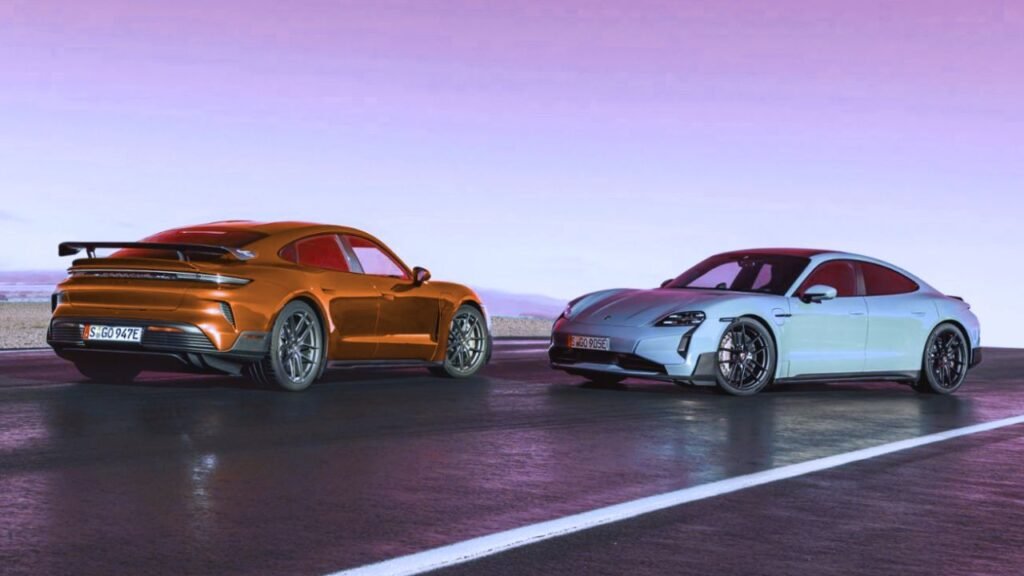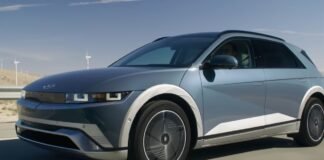- Giorgi Tedoradze, a Georgia-based designer, envisioned a 2026 Mercedes-Benz F-Class sedan, presenting a radical design departure from the current Mercedes lineup.
- Mercedes’ current electric sedans, the EQE and EQS, have faced lukewarm market responses in the U.S., partly due to their high prices and polarizing designs.
- The 2025 Porsche Taycan has been praised for its power, efficiency, and upgraded battery packs, positioning it well in the luxury EV market.
- Social media comparisons of the F-Class and Taycan have sparked mixed reactions, highlighting the ongoing debate about future design directions in the automotive industry.

Mercedes-Benz’s hypothetical 2026 F-Class sedan design project is sparking intense debates. This intriguing concept, imagined by Georgia-based industrial designer Giorgi Tedoradze (known on social media as tedoradze.giorgi), presents a fascinating vision for the future of Mercedes sedans, directly challenging the newly refreshed 2025 Porsche Taycan.
Tedoradze’s renderings, shared on Instagram, showcase a sleek, futuristic design that boldly reinterprets Mercedes’ current aesthetic. The F-Class, with its long, streamlined profile and classically-inspired yet vertically-slated radiator grille, evokes a sense of timeless elegance while hinting at a revolutionary shift in design philosophy.
This daring concept stands in stark contrast to the somewhat polarizing designs of the current all-electric EQE and EQS sedans, which many critics liken to “half-empty eggshells” due to their aerodynamic, yet uninspiring, forms.
Despite Mercedes’ reputation for luxury, the EQE and EQS have faced tepid market responses in the U.S., with starting prices of $75,000 and $104,400, respectively.
In comparison, Tesla’s more competitively priced Model 3 and Model S, starting at $39,000 and $73,000, have made significant inroads into the mainstream market. Porsche’s Taycan, another high-end electric contender, starts at $99,400, with the Taycan 4S and Turbo models priced at $118,500 and $173,600, respectively.
The refreshed 2025 Taycan, lauded for its blend of luxury, sportiness, and efficiency, sets a high bar. Engineers have enhanced its power and energy efficiency, upgrading the battery packs without altering the platform. The Taycan Turbo GT now competes with hyper-sedans like the 1,020-hp Tesla Model S Plaid and the 1,234-hp Lucid Air Sapphire, cementing its place in the elite EV segment.
In contrast, Mercedes’ EQE and EQS models, though luxurious, lack the performance and excitement found in their competitors. Tedoradze’s F-Class concept aims to address this gap, injecting a fresh dose of style and innovation. His design reimagines the traditional sedan form, blending classic elements with futuristic lines to create a vehicle that could potentially rival the likes of the Taycan.
On social media, Tedoradze directly compared his F-Class renderings with the Taycan, inviting followers to weigh in on which design they preferred. The response has been mixed, with some praising the bold new direction for Mercedes, while others remain skeptical about its potential impact.
As the automotive industry continues to evolve, concepts like the 2026 F-Class play a crucial role in shaping future trends. Whether Mercedes-Benz will embrace such radical design changes remains to be seen, but one thing is clear: the competition in the luxury electric vehicle market is fiercer than ever.
Stay tuned as we follow this exciting development and explore how it could influence the future of automotive design.


